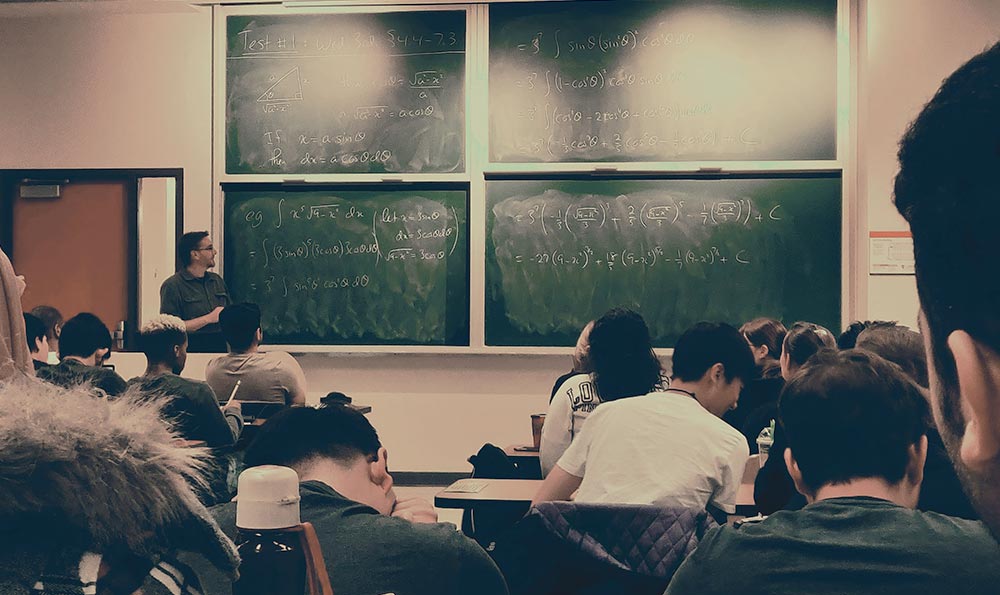高考英语阅读理解题及答案 高考英语考试中,阅读理解的分数占有很大比例,下面我给大家准备了高考的.英语阅读理解的练习以及答案,欢迎大家阅读学习! 第一篇: Our brains work in complex and strange ways.There are some people who can calculate the day of the week for any given date in 40,000 years, but who cannot add two plus two.Others can perform complex classical piano pieces after hearing them once, but they cannot read or write. Dr.J.Langdon Down first described this condition in 1887.He called these people idiot savants.An idiot savant is a person who has significant mental impairment (损伤) , such as in autism ( 孤独症,自闭症) or retardation.At the same time, the person also exhibits some extraordinary skills, which are unusual for most people.The skills of the savant may vary from being exceptionally gifted in music or in mathematics, or having a photographic memory. One of the first descriptions of a human who could calculate quickly was written in 1789 by Dr.Benjamin Rush, an American doctor.His patient, Thomas Fuller, was brought to Virginia as a slave in1724.It took Thomas only 90 seconds to work out that a man who has lived 70 years, 17 days, and 12 hours has lived 2,210,500,800 seconds.Despite this ability, he died in 1790 without ever learning to read or write. Another idiot savant slave became famous as a pianist in the 1860s.Blind Tom had a vocabulary of only 100 words, but he played 5 ,000 musical pieces beautifully. In the excellent movie Rain Man, made in 1988 and available on video cassette, Dustin Hoffman plays an idiot savant who amazes his brother played by Tom Cruise, with his ability to perform complex calculations very rapidly. Today we more clearly recognize that the idiot savant is special because of brain impairment.Yet not all brain impairment leads to savant skills.Some studies have shown that people who have purposeful interruption of the left side of the brain can develop idiot savant skills.However few people wish to participate in such experiments.There are many excellent reasons for not undergoing unnecessary experimentation on ones brain.The term idiot savant is outdated and inappropriate.Virtually all savants have a high degree of intelligence and are thus not idiots. 72.What does the passage mainly talk about? A.Idiot savants have areas of outstanding abilities. B.Human Beings have complicated thinking process. C.The brains of the idiot savants are partly impaired. D.The reasons why people have wonderful skills vary. 73.Which of the following can be done by Rain Man? A.He can play wonderful pieces of classical music. B.He can guess out exactly the length of a mans life. C.He can memorize the contents of the pictures fast. D.He can count matches dropped on the floor quickly. 74.What can you infer from the passage? A.Idiot savants have real talents for art and math. B.Dr.Down is the first person who found idiot savants. C.Few people wish to risk becoming savants by brain operations. D.Intentional left brain impairments will surely lead to idiot savants. 75.Which of the following shows the structure of the passage? 第二篇: Laws that would have ensured pupils from five to 16 received a full financial education got lost in the ‘wash up’. An application is calling on the next government to bring it back. At school the children are taught to add up and subtract(减法) but, extraordinarily, are not routinely shown how to open a bank account — let alone how to manage their finances in an increasingly complex and demanding world. Today the parenting website Mumsnet and the consumer campaigner Martin Lewis have joined forces to launch an online application to make financial education a compulsory element of the school curriculum in England. Children from five to 16 should be taught about everything from pocket money to pensions, they say. And that was exactly the plan preserved in the Children, Schools and Families bill that was shelved by the government in the so-called “wash-up” earlier this month — the rush to legislation before parliament was dismissed. Consumer and parent groups believe financial education has always been one of the most frustrating omissions of the curriculum. As the Personal Finance Education Group (Pfeg) points out, the good habits of young children do not last long. Over 75% of seven- to 11-year-olds are savers but by the time they get to 17, over half of them are in debt to family and friends. By this age, 26% see a credit card or overdraft(透支) as a way of extending their spending power. Pfeg predicts that these young people will “find it much harder to avoid the serious unexpected dangers that have befallen many of their parents generation unless they receive good quality financial education while at school.” The UK has been in the worst financial recession(衰退)for generations. It does seem odd that — unless parents step in — young people are left in the dark until they are cruelly introduced to the world of debt when they turn up at university. In a recent poll of over 8,000 people, 97% supported financial education in schools, while 3% said it was a job for parents. 61. The passage is mainly about _____________. A. how to manage school lessons B. how to deal with the financial crisis C. teaching young people about money D. teaching students how to study effectively 62. It can be inferred from the first two paragraphs that __________. A. the author complains about the school education B. pupils should not be taught to add up and subtract C. students have been taught to manage their finances D. laws on financial education have been effectively carried out 63. The website and the consumer campaigner joined to _________. A. instruct the pupils to donate their pocket money B. promote the connection of schools and families C. ask the government to dismiss the parliament D. appeal for the curriculum of financial education 64. According to Pfeg, ___________. A. it is easy to keep good habits long B. teenagers spend their money as planned C. parents are willing to pay the debt for their kids D. it will be in trouble if the teenagers are left alone 65. A poll is mentioned to ___________. A. stress the necessity of the curriculum reform B. show the seriousness of the financial recession C. make the readers aware of burden of the parents D. illustrate some people are strongly against the proposal >>>>>>参考答案<<<<<< 第一篇:ADCB 第二篇:61-65 CADDA ;

高考英语阅读理解技巧
导语:高考英语试题中阅读理解占的分值最高,同时难度也是最高的,很多同学在做阅读理解题的时候,由于阅读速度偏慢,导致花费在阅读理解上的时间过多,但却没收到好的阅读效果,实在是有些遗憾,那么为了提高阅读,增加阅读准确率,应该怎么做呢?相信同学们学会以下的阅读方法,勤加练习,一定能让阅读理解有大的提升。 高考英语:如何提高阅读理解速度 1.快速泛读(fast extensive reading) 平时要养成快速泛读的习惯。这里讲的泛读是指广泛阅读大量涉及不同领域的书籍,要求读得快,理解和掌握书中的主要内容就可以了。要确定一个明确的读书定额,定额要结合自己的实际,切实可行,可多可少。例如每天读20页,一个学期以18周计算,就可以读21本中等厚度的书(每本书约120页)。 2.计时阅读(timed reading) 课余要养成计时阅读的习惯。计时阅读每次进行5~10分钟即可,不宜太长。因为计时快速阅读,精力高度集中,时间一长,容易疲劳、精力分散,反而乏味。阅读时先记下“起读时间”(startingtime),阅读完毕,记下“止读时间”(finishingtime),即可计算出本次阅读速度。随手记下,长期坚持,必定收到明显效果。 3.略读(skimming) 略读又称跳读(readingandskipping)或浏览(glancing),是一种专门的,非常实用的快速阅读技能。所谓略读,是指以尽可能快的速度阅读,如同从飞机上鸟瞰(birdseyeview)地面上的明显标志一样,迅速获取文章大意或中心思想。换句话说,略读是要求读者有选择地进行阅读,可跳过某些细节,以求抓住文章的大概,从而加快阅读速度。据统计,训练有素的略读者(skimmer)的阅读速度可以达到每分钟3000到4000个词。 阅读时,先把文章粗略地浏览一下,看看文章中是否有自己工作和学习需要的或自己感兴趣的资料和信息,然后确定这篇文章是否值得细读。在查找资料时,如果没有充分时间,而又不需要高度理解时,就可以运用略读技巧。“不需要高度理解”并非指略读时理解水平可以很低,而是说略低于一般阅读速度所取得的理解水平是允许的。 一般阅读的目标是在保持一般阅读速度的条件下,获得尽可能高的理解水平,通常达到70%或80%。略读时,理解水平略低一些是预料之中的事,平均理解率达50%或60%就可以了。 略读有下列四个特点: (1)以极快的速度阅读大量材料,寻找字面上或事实上的主要信息和少量的阐述信息。 (2)可以跳过某个部分或某些部分不读。 (3)理解水平可以稍低一些,但也不能太低。 (4)根据文章的`难易程度和达到的目的,不断灵活地调整阅读速度。 略读可以运用下列技巧: (1)要利用印刷细节(type graphical details),如书或文章的标题、副标题、小标题、斜体词、黑体词、脚注、标点符号等,对书和文章进行预测略读(previewskimming)。预测略读要了解作者的思路、文章方式(模式),以便把握大意,有关的细节及其相互关系。 (2)以一般阅读速度(200~250wpm),阅读文章开头的一、二段,力求抓住文章大意、背景情况、作者的文章风格、口吻或语气等。 (3)阅读段落的主题句和结论句。抓住主题句就掌握了段落大意,然后略去细节不读,以求得略读速度。 (4)注意转折词和序列词。转折词如however,moreover,inaddition等;序列词firstly,secondly等。 (5)若无需要,不必阅读细节。 4.寻读(Scanning) 寻读又称查读,同略读一样,寻读也是一种快速阅读技巧。熟练的读者善于运用寻读获得具体信息,以提高阅读效率。 寻读是一种从大量的资料中迅速查找某一项具体事实或某一项特定信息,如人物、事件、时间、地点、数字等,而对其它无关部分则略去不读的快速阅读方法。运用这种方法,读者就能在最短的时间内掠过尽可能多的印刷材料,找到所需要的信息。在车站寻找某次列车或汽车的运行时刻,在机场寻找某次班机的飞行时刻,在图书馆查找书刊的目录,在文献中查找某一日期、名字、数字或号码等,都可以运用这种方法。 作为一种快速寻找信息的阅读技巧,寻读既要求速度,又要求寻读的准确性。具体地说,寻读带有明确的目的性,有针对性地选择问题的答案。可以把整段整段的文字直接映入大脑,不必字字句句过目。视线在印刷材料上掠过时,一旦发现有关的内容,就要稍作停留,将它记住或摘下,既保证寻读的速度,又做到准确无误,所以寻读技巧也很有实用价值。寻读与略读不同。略读时,读者事先对材料一无所知,而寻读则是读者对材料有所了解的情况下进行的。寻读电话号码簿,读者知道受话人的姓名,还知道电话号码簿是按姓的字母顺序排列的。在寻找Jackson的电话时,就可以利用书页上方的标识词,再按姓的字母顺序很快翻到以J开头的书页,从而找到Jackson名下的电话页码。 为了有效地进行寻读,建议应运用下列技巧。 (1)利用材料的编排形式 资料多半是按字母顺序排列的。如词典、索引、邮政编码簿、电话号码簿以及其它参考资料簿等。当然并非所有资料都是按字母顺序排列的。电视节目是按日期和时间排列的。历史资料是按年代排列的,报纸上的体育版面是按比赛类别(足球、排球、网球)排列等等。不管资料来源怎样,它都是按照某种逻辑方法排列的。要知道某事是何时发生的,要查日期;某事是谁做的,要查人名等。 (2)利用章节标题和说明 寻读之后,首先看看文章标题或章节标题,确定文章是否包含自己所需要的材料,或者哪一部分包含哪些材料,这样可以直接翻到那个部分,进行寻找。 (3)抓提示词 读者找到包含所需信息的章节,准备寻读。要留心与那个具体信息有关的提示词。在报纸体育运动版上寻找某田径运动员的某项运动成绩,他的国名是提示词。在百科全书上寻找纽约市的人名,翻到NewYorkCity那一章后,population,census,inhabitants等词就是提示词,找到提示词,就可以采用一般阅读速度,获得所需要的信息。 以上就是四种练习快速的方法介绍,其实这些高中英语学习方法我们在平常的生活和学习中都曾用到过,只是我们没有意识到而已,而一旦把它们作为方法单独挑选出来,然后按照其要求坚持练习,就会取得很好的效果。这也说明了在我们身边就有很多途径可以提高阅读速度,关键还要看你怎样去挖掘这些方法了。

高考英语阅读理解占多少分
高中毕业考试英语题型分为高中毕业考试英语听力、语法填空、完形填空、阅读理解、短文改错和高中毕业考试英语作文。高中毕业考试全国一卷英语考试试卷结构由4个部分组成,考试试卷满分150分,第一个听力(30分,共两节,计入满分);第一节(共5小题,每小题1.5分,满分7.5分);第二节(共15小题,每小题1.5分,满分22.5分);第二个阅读理解。2023年英语高中毕业考试各题型所占分值?

2023年高中毕业考试英语考试试卷满分150分。第一部听力(30分,共两节,计入满分);第一节(共5小题;每小题1.5分,满分7.5分) 第二节(共15小题;每小题1.5分,满分22.5分) 。第二个单项填空15分,第三个完形填空30分,第四个阅读理解40分,第五个短文改错10分,第六个书面表达25分。高中毕业考试英语题型分为高中毕业考试英语听力、语法填空、完形填空、阅读理解、短文改错和高中毕业考试英语作文。高中毕业考试全国一卷英语考试试卷结构由4个部分组成,考试试卷满分150分,第一个听力(30分,共两节,计入满分);第一节(共5小题,每小题1.5分,满分7.5分);第二节(共15小题,每小题1.5分,满分22.5分);第二个阅读理解。2023年英语高中毕业考试各题型所占分值?
2023年高中毕业考试英语考试试卷满分150分。第一部听力(30分,共两节,计入满分);第一节(共5小题;每小题1.5分,满分7.5分) 第二节(共15小题;每小题1.5分,满分22.5分) 。第二个单项填空15分,第三个完形填空30分,第四个阅读理解40分,第五个短文改错10分,第六个书面表达25分。
















